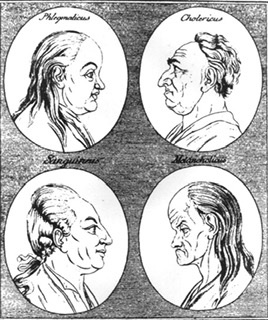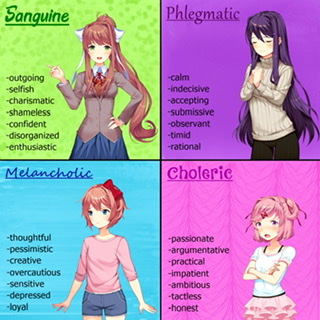Let’s see.
Basically, what I said is that a combination of terms can be a logical contradiction and that this also applies to psychological terms.
But then, you disagreed with me. Why?
I expect anyone who agrees with what I said in the above to respond with a simple “Yes, that is true” and anyone who wants to add that they do not think that “choleric introvert” is an instance of a logical contradiction to respond with a simple “But I don’t think this particular combination of terms is a contradiction.”
But did I get that? I don’t think so.
Instead, I get to hear about how what I say is “truer in geometry than it is in psychology”. So what am I to think other than that you think that contradictions are “truer in geometry than they are in psychology”? I have no choice but to assume that you think that logic does not apply to psychological terms.
The word “introvert” does not mean “not choleric”. That’s not my position. I don’t know who told you that, but trust me, it is not my position (:
The word “square” does not mean “not circle” since there are things (such as hexagons) that are “not circles” and at the same time “not squares”.
My position is that the two concepts, “choleric” and “introvert”, do not overlap in the same exact way that the concept of “square” and the concept of “circle” do not overlap.
Binary classification, you may say. Well, when it comes to temparements, it is actually a quaternary classification. Without such a classification, it is impossible to put people in one of the four groups. How many classes do you want? An infinite number of them? What’s the point of having so many of them? But then, this isn’t about MY method of classification. It’s actually Greeks who came up with it and they just happened to settle for four classes in total – no more and no less.
On the other hand, someone is either choleric or they are not. That’s binary classification. You can also say, binary membership. A thing either belongs to a set or it does not. Without it, you can’t say someone is choleric. Instead, you are forced to be verbose, in many cases unnecessarily, by making statements such as “John is 89% choleric”. Nothing wrong with that sort of thing, it’s just that it’s not useful in every situation. Binary classification isn’t evil. (And a method of classification cannot be true or false, it can only be useful or useless in relation to a goal.)
You are merely reasserting your opinion that the concept of “choleric” and the concept of “introvert” overlap. But do they? How are we going to resolve this without studying definitions? (Obviously, you don’t want to bother with definitions. Nothing wrong with that per se, each one of us chooses how they are going to spend their time, but then, there can be no further discussion between the two of us on this particular subject.)
I already did. He’s a Phlegmatic / Choleric and an INTP. As Biguous likes to say, I might be wrong. But he’s most definitely not a choleric.

